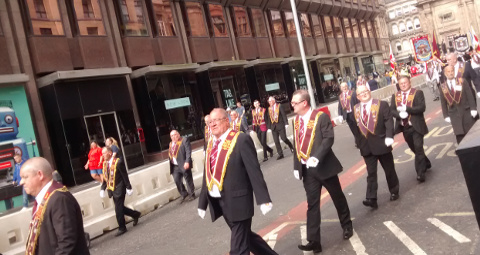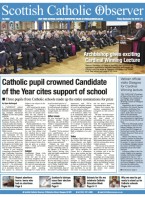July 13 | ![]() 0 COMMENTS
0 COMMENTS ![]() print
print

There’s one simple way the government can reassure the Catholic community after attack on priest
Catholics make up half of all victims of religious hate crime in Scotland—so why is there no representative of the Catholic community on the government’s working group to define sectarianism?
‘Behaviour like this—hate crime of any kind—is simply unacceptable.” These were the words of the First Minister this week after Canon Tom White was attacked as an Orange walk marched past his church. And those words were, of course, genuine. As were the words of politicians from every political party, condemning the attack.
But words are cheap. They won’t prevent priests being spat at in the streets, city centre bridges from having ‘kill all Catholics’ written on them, churches from being desecrated, or council employees being discriminated against—all things which have happened in the last year alone.
What was not heard were any concrete proposals to prevent what happened to Canon White happening again.
That unfortunately is not surprising. Scotland is a country that refuses to acknowledge, nevermind apologise for, its more than a century of discrimination against a poor, Catholic, largely immigrant, minority; a country where most politicians won’t even use the words ‘anti-Catholicism,’ hiding instead behind the vague, false-equivalency promoting word ‘sectarianism.’
Indeed, not the First Minister, or the Labour leader, or the Conservative leader, spoke of anti-Catholicism this week. If an imam was spat on in the street, or a rabbi, would those same politicians shy away from speaking of Islamaphobia or anti-Semitism? If a prominent member of the LGBT community was attacked, would the government avoid taking action to protect that community?
There is, of course, one concrete thing the Scottish Government can do to reassure Catholics. A working group has been set up to define sectarianism in Scotland. It has no representatives on it from the Catholic community.
It’s a simple, easy, reasonable request: put a representative of the Catholic community on a working group set up to define a hate crime problem that primarily affects Catholics. With that straightforward move, the government can show the Catholic community they are listening, rather than just talking.










